Share This
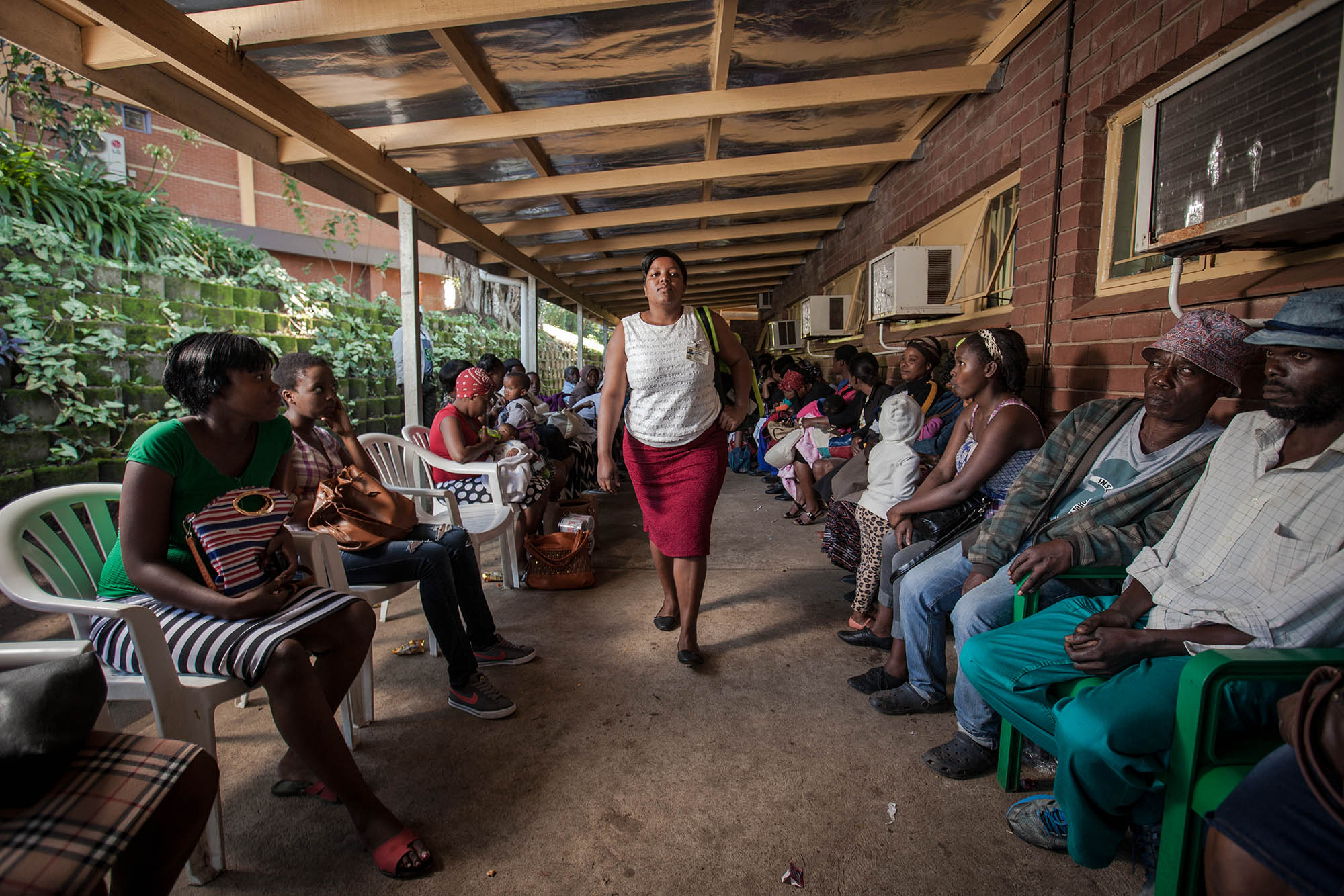
Community Care Giver Nonhlanhla Ngema passes a long queue of patients at Eshowe Gateway Clinic to pick up ARVs for members of her Community ART Group (CAG). Doctors Without Borders (MSF) has been piloting CAGs as a model of care for stable HIV+ patients in rural districts of southern Africa, where HIV prevalence is at its highest. CAG members meet once every two months to review their health and arrange for collection of their ARVs without having to sit in long queues at clinics. Photo: Greg Lomas / MSF
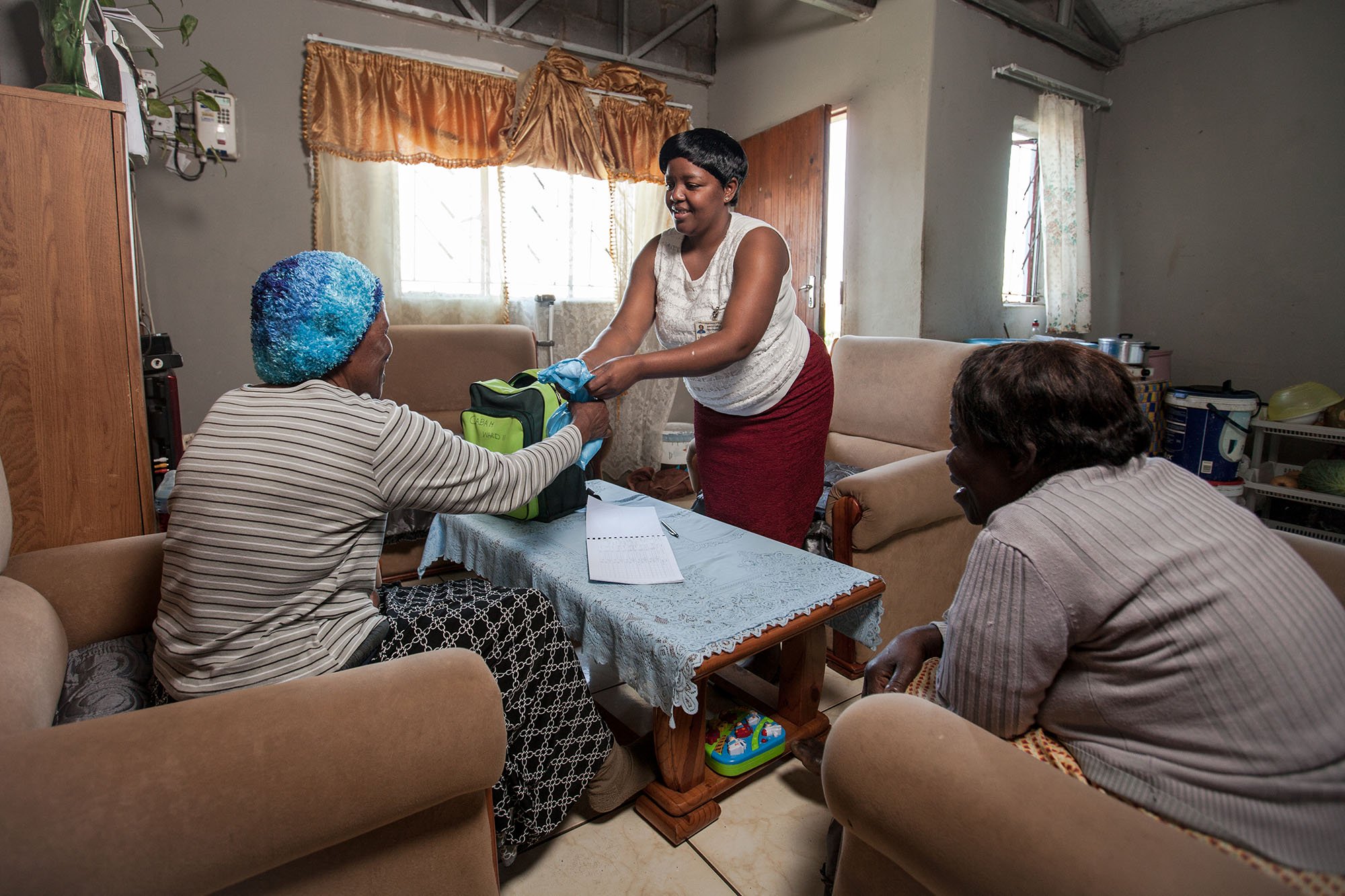
Community Care Giver Nonhlanhla Ngema delivers anti-retrovirals (ARVs) to Elizabeth Mkhize, a member of her Community ART Group (CAG) in Sunnydale, Eshowe, KwaZulu-Natal. Doctors Photo: Greg Lomas/MSF
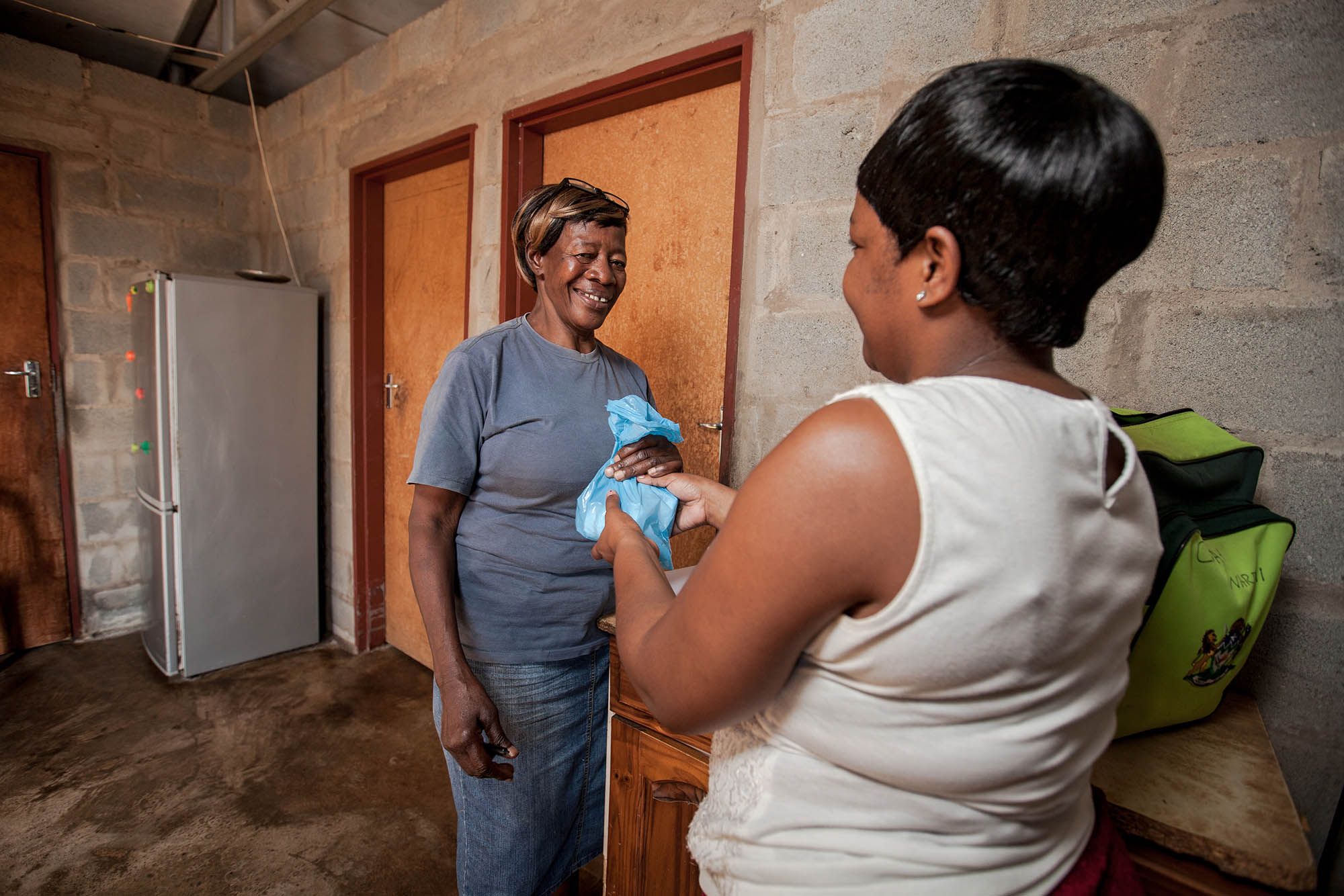
Community Care Giver Nonhlanhla Ngema delivers anti-retrovirals to Elizabeth, a member of her Community ART Group in Sunnydale, Eshowe, KwaZulu-Natal. Photo: Greg Lomas / MSF
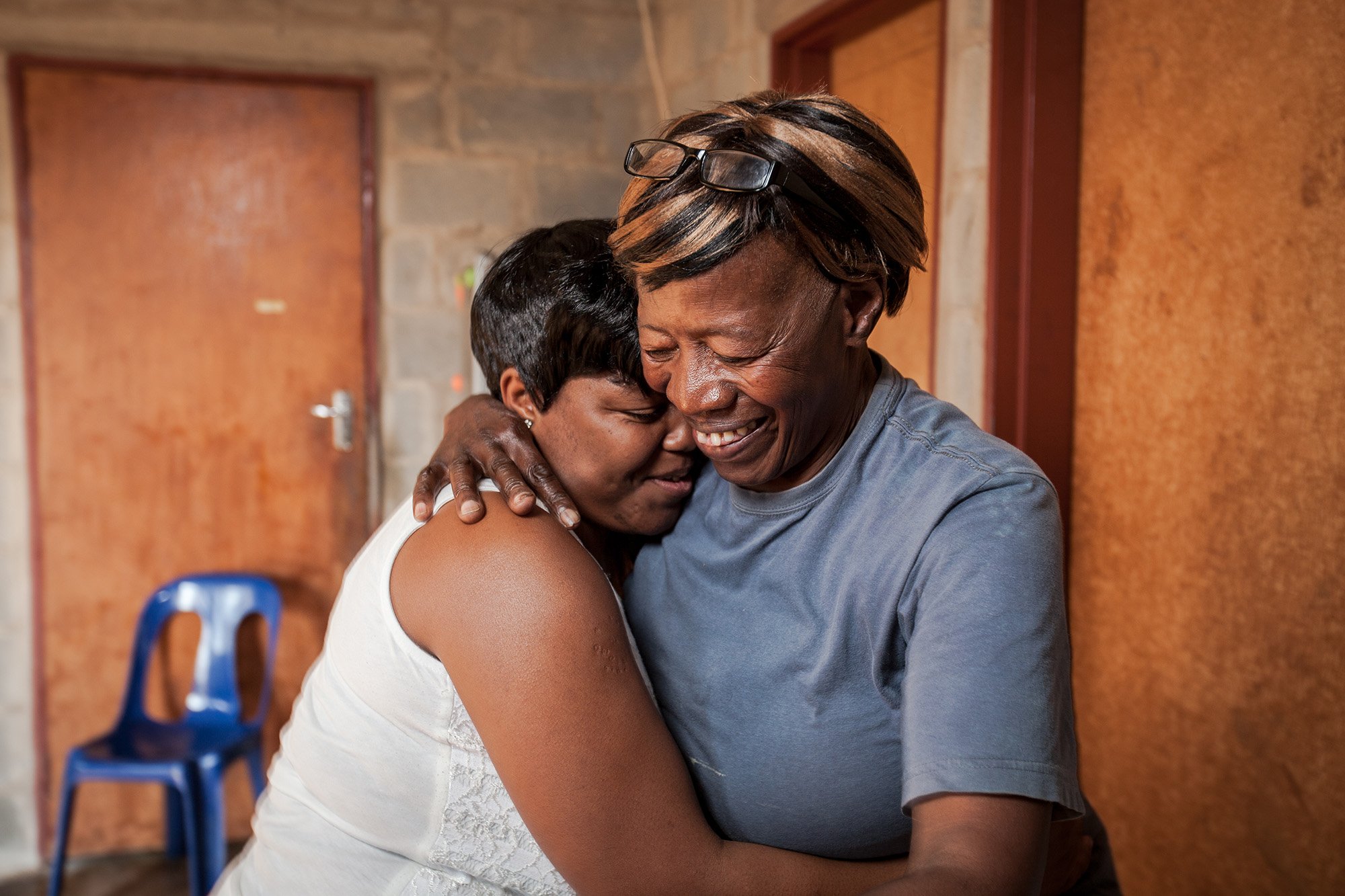
Community Care Giver Nonhlanhla Ngema gets a hug from Elizabeth Mkhize, a member of her Community ART Group (CAG) in Sunnydale, Eshowe, KwaZulu-Natal. Photo: Greg Lomas / MSF
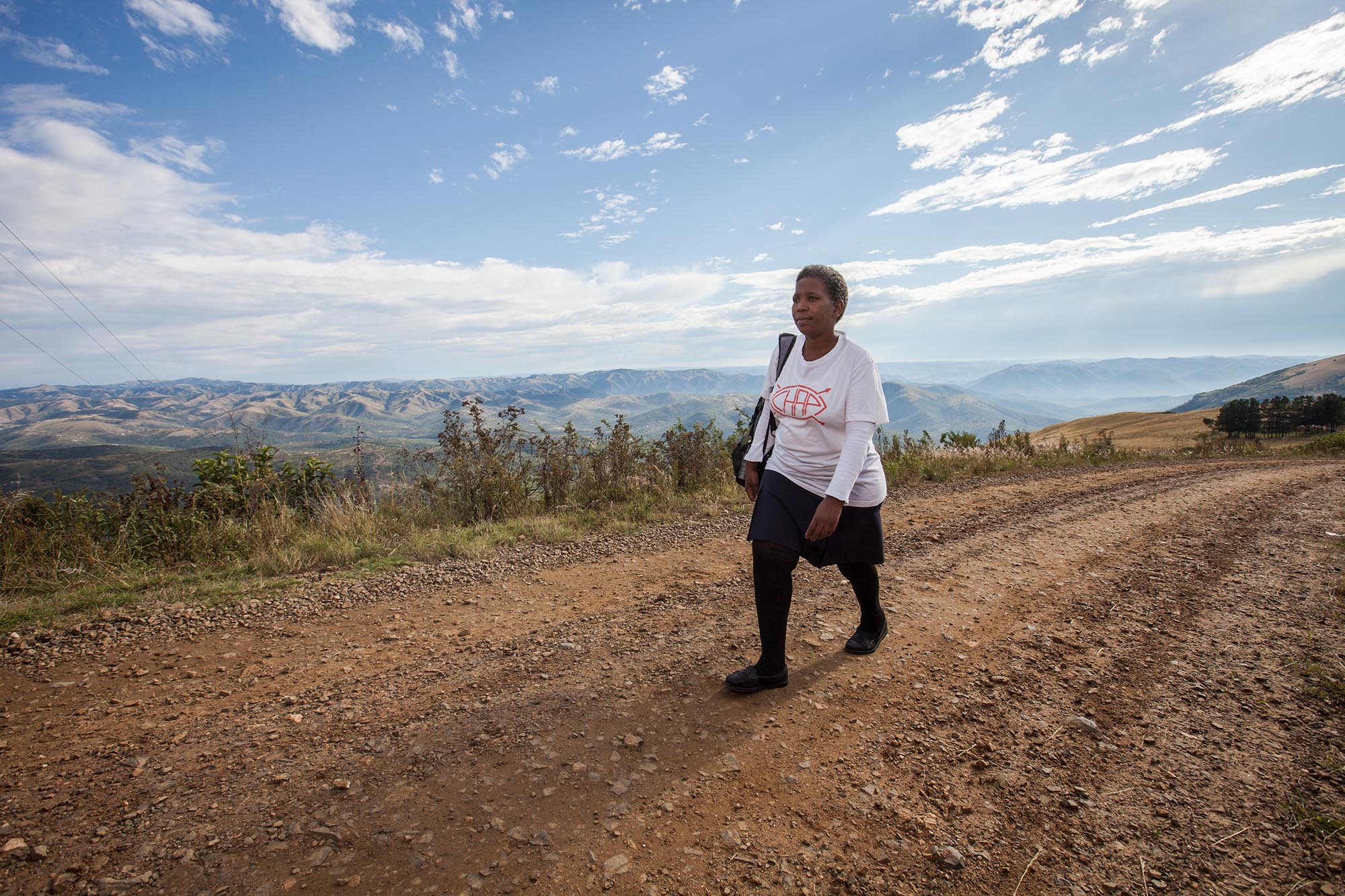
Community Health Agent Babongile Luhlongwane walks long distances each day to deliver HIV Counselling and Testing services to inhabitants of the Entumeni Umlalazi Municipality under Uthungulu District in rural KwaZulu-Natal, where HIV prevalence is extremely high. She is one of almost 90 Community Health Agents managed by MSF to take testing and counselling the most remote parts of the province. Photo: greg Lomas / MSF
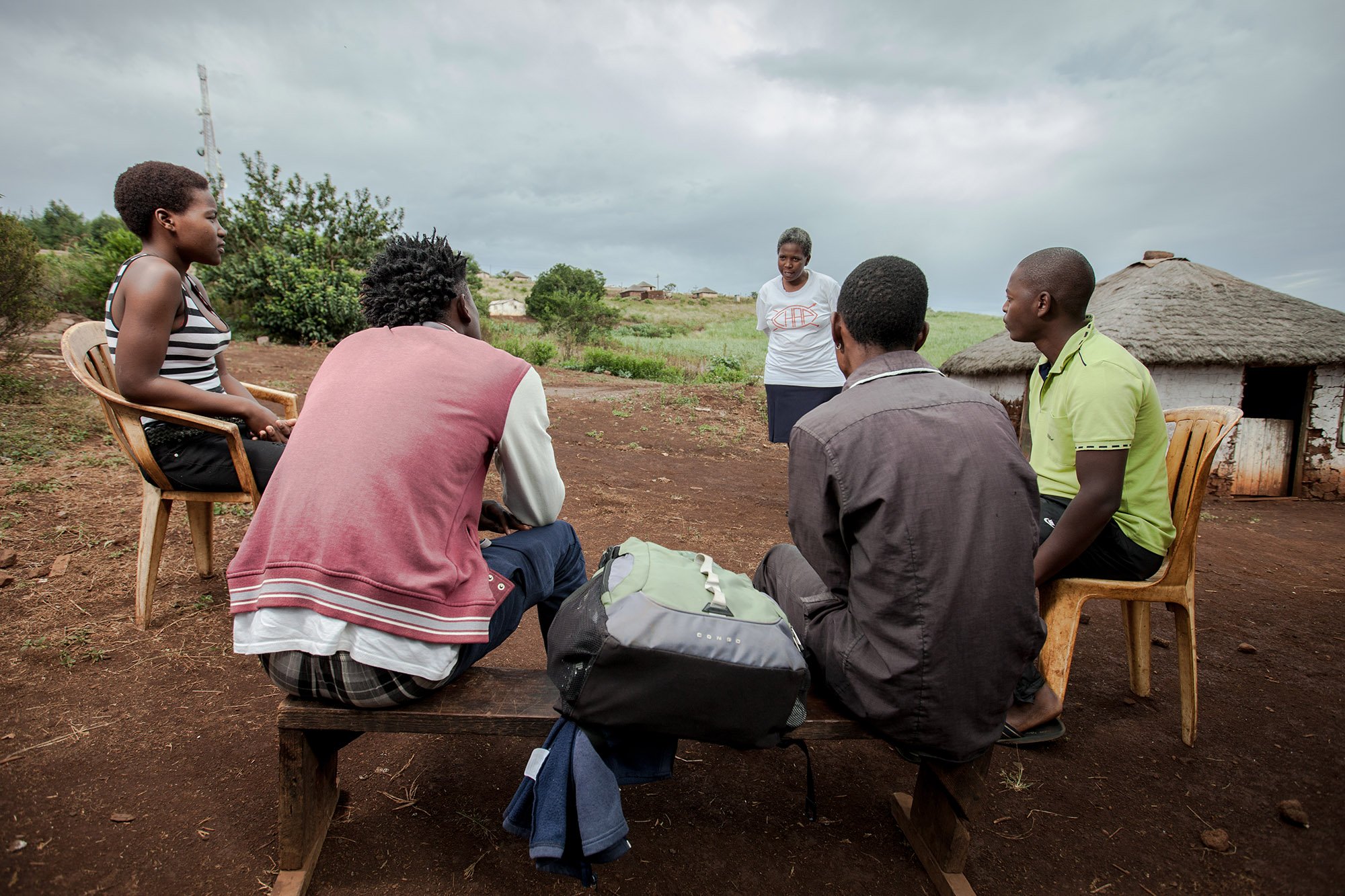
Community Health Agent Babongile Luhlongwane delivers a HIV health talk to young residents of a homestead in the rural Entumeni Umlalazi Municipality under Uthungulu District, KwaZulu-Natal. Photo: Greg Lomas / MSF
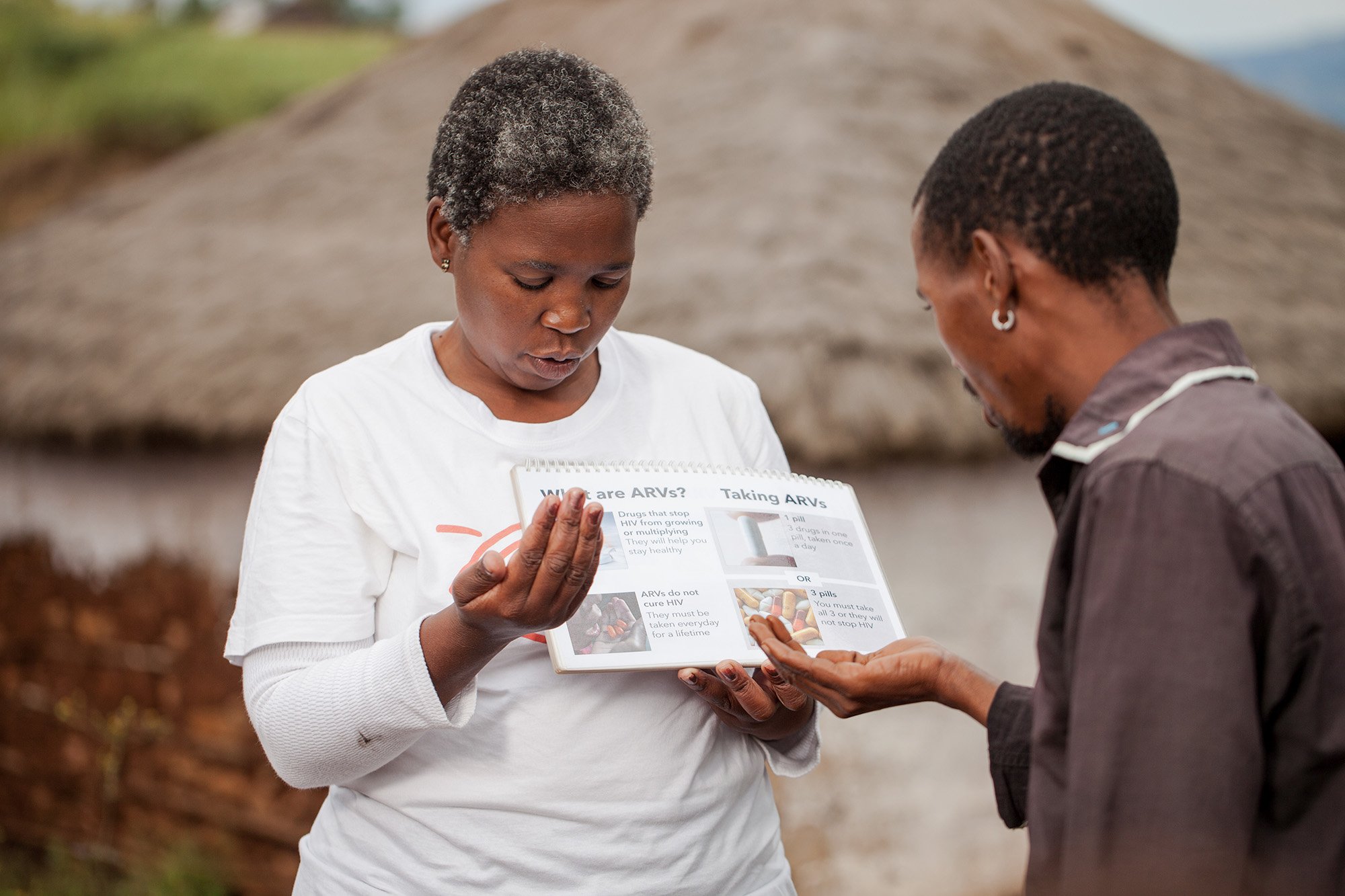
Twenty-eight-year-old Andile Dladla engages with Community Health Agent Babongile Luhlongwane during her HIV health talk at his rural homestead in the Entumeni Umlalazi Municipality under Uthungulu District, KwaZulu-Natal. Afterwards he will choose to get tested for HIV. Photo: Greg Lomas / MSF
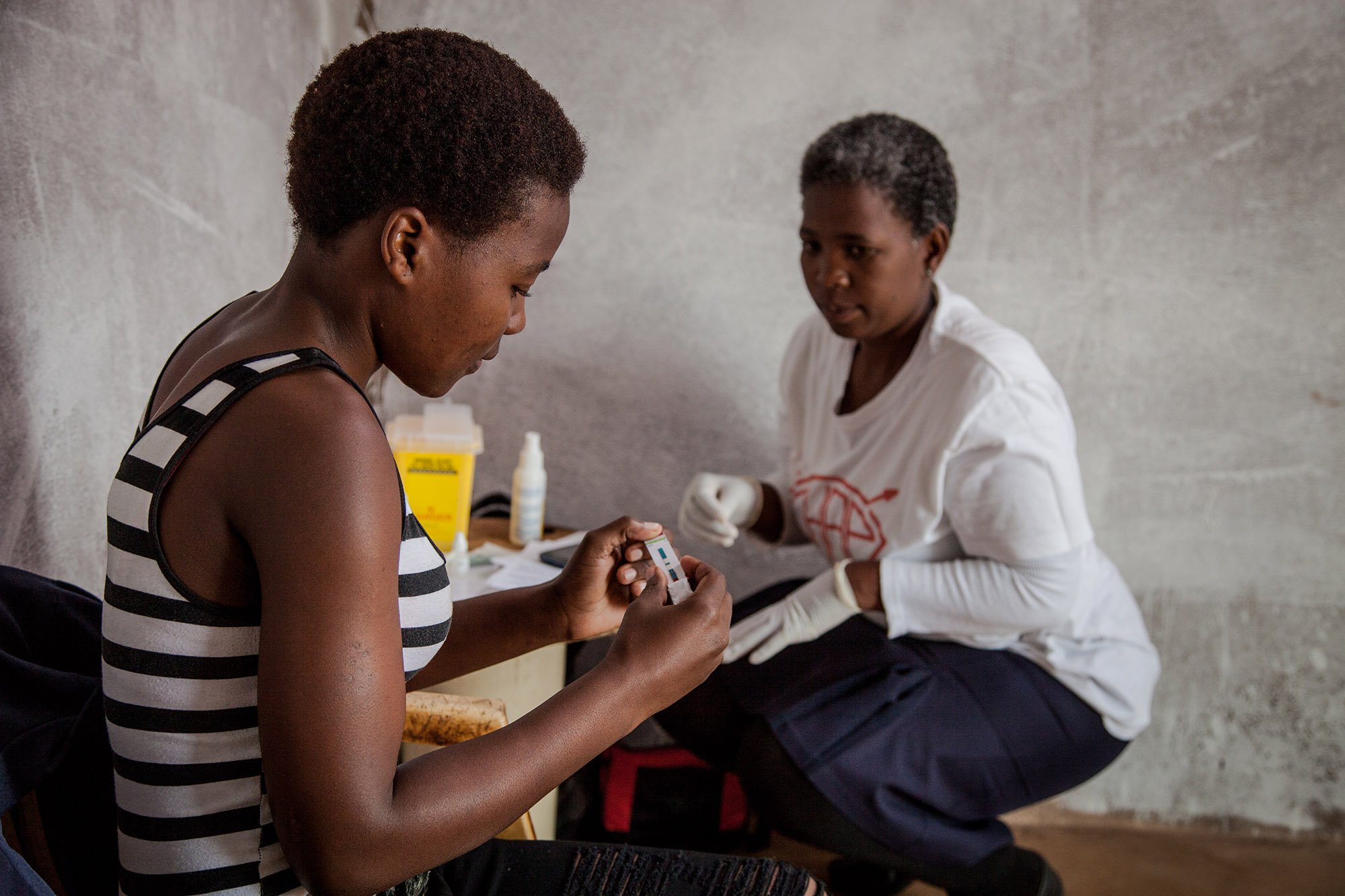
Community Health Agent Babongile Luhlongwane conducts an HIV test on 23-year-old Philisiwe Mhlongo, a young woman living in the remote Entumeni District of KwaZulu-Natal, where HIV prevalence is at its highest. If found positive Philisiwe will be referred to the nearest local clinic to be initiated onto ARVs. Photo: Greg Lomas / MSF
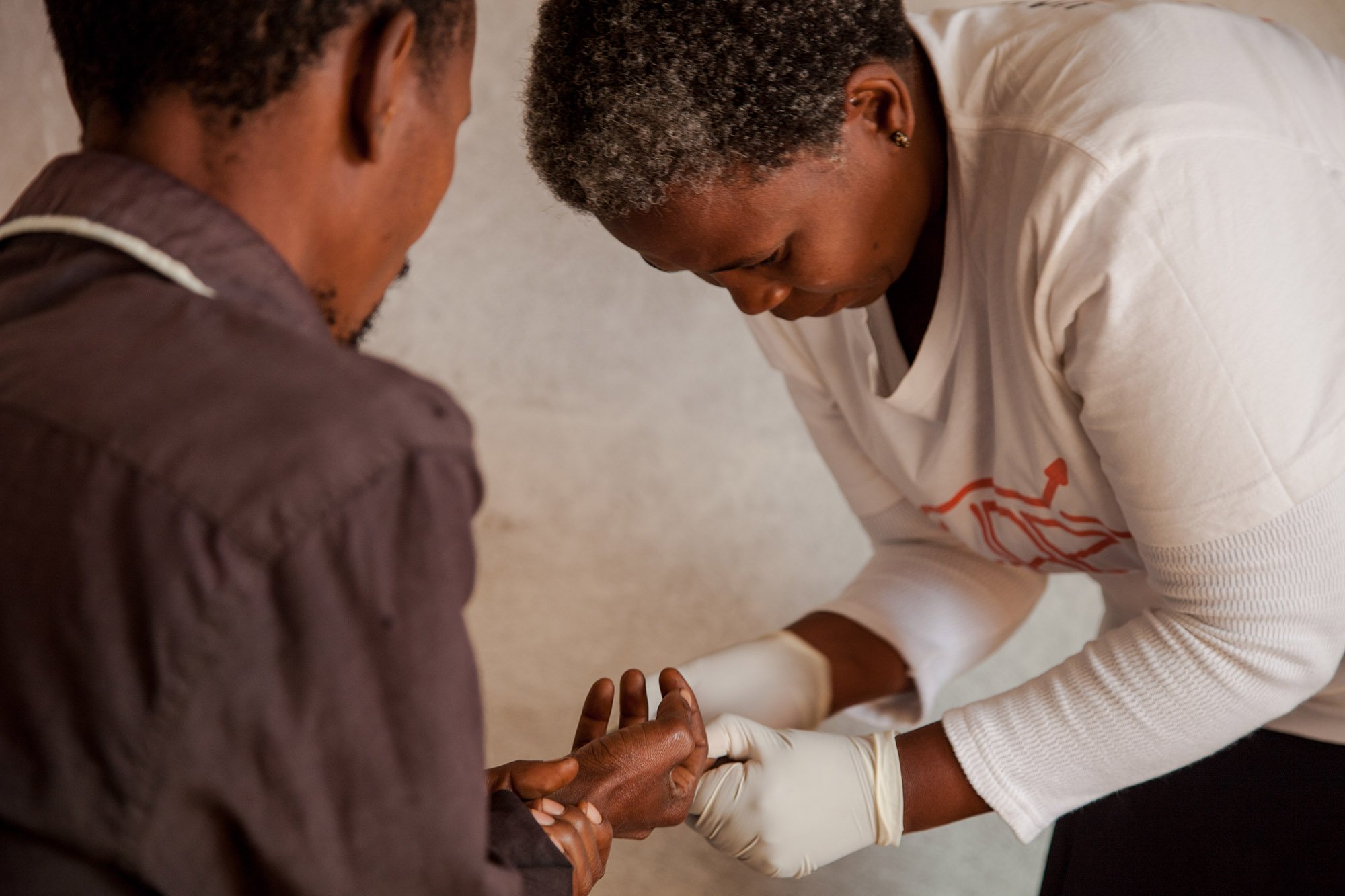
Community Health Agent Babongile Luhlongwane conducts an HIV test on Andile Dladla (28), who lives in the remote Entumeni District of KwaZulu-Natal, where HIV prevalence in South Africa is among the highest. If he tests positive, she will refer him to the nearest local clinic to be initiated onto ARVs. Photo: Greg Lomas / MSF
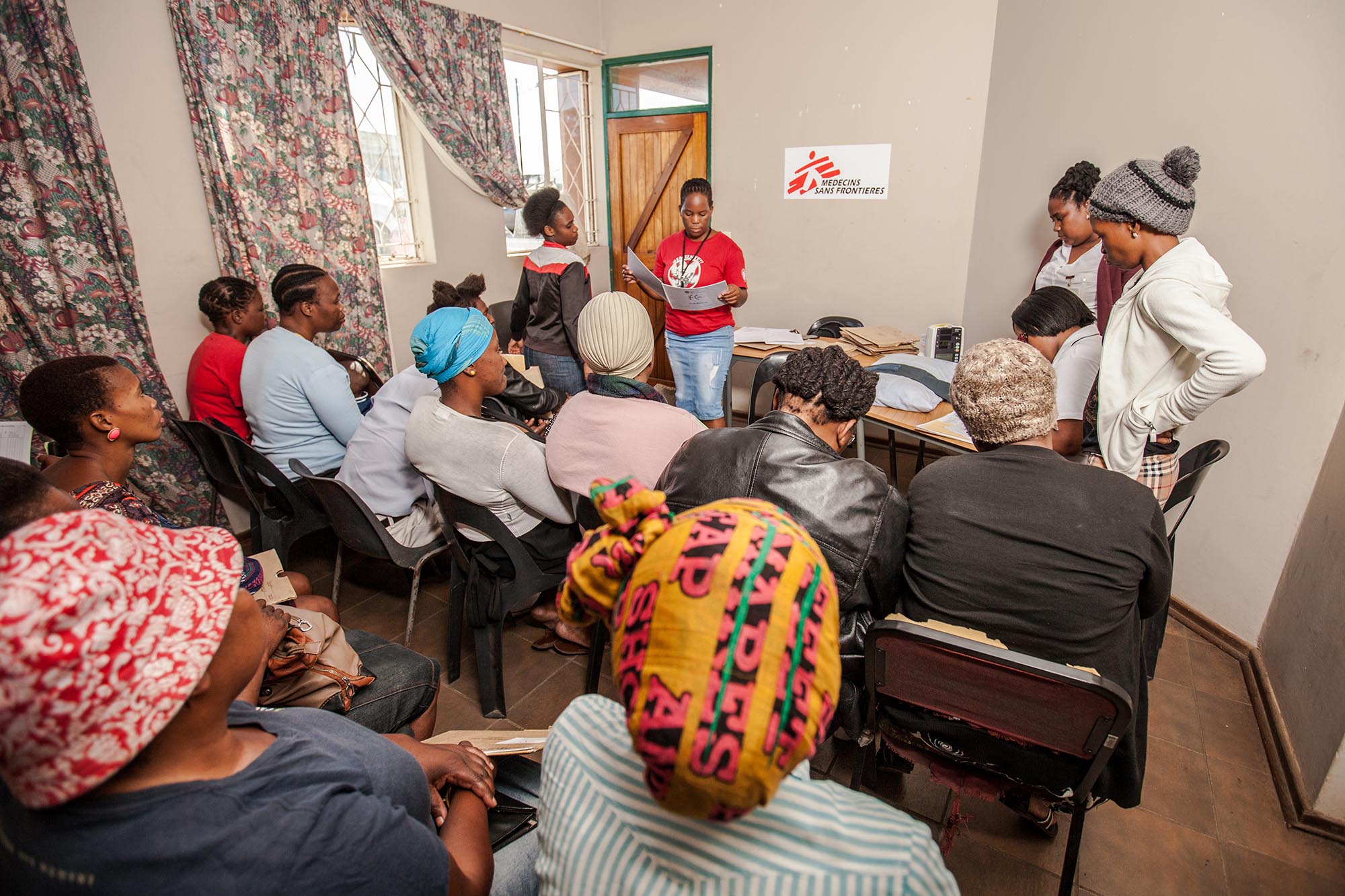
MSF Lay Counsellor Gugulethu Mhlanga checks the register at the start of the Community Adherence Club taking place at King Dinizulu Clinic in Eshowe, KwaZulu-Natal. Photo: Greg Lomas / MSF
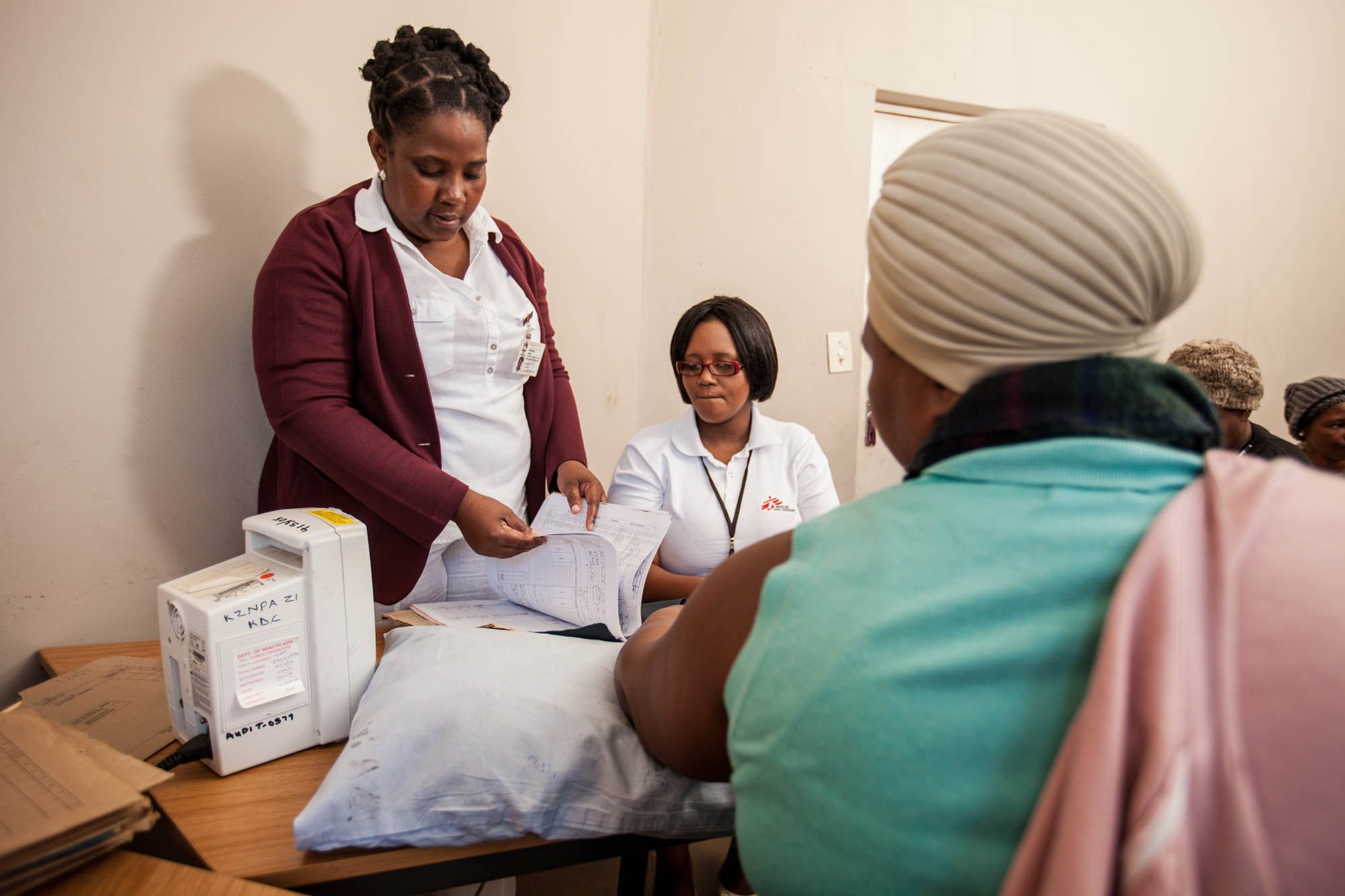
A woman gets her vital signs checked during the Community Adherence Club meeting at King Dinizulu Clinic in Eshowe, KwaZulu-Natal. Up to 30 stable HIV+ patients attend the club once every two months to have their health checked, receive their ARVs and get support from other club members. As with CAGs, the club model of care is aimed at making HIV treatment more accessible in high-burden, low-resource settings. Photo: Greg Lomas / MSF
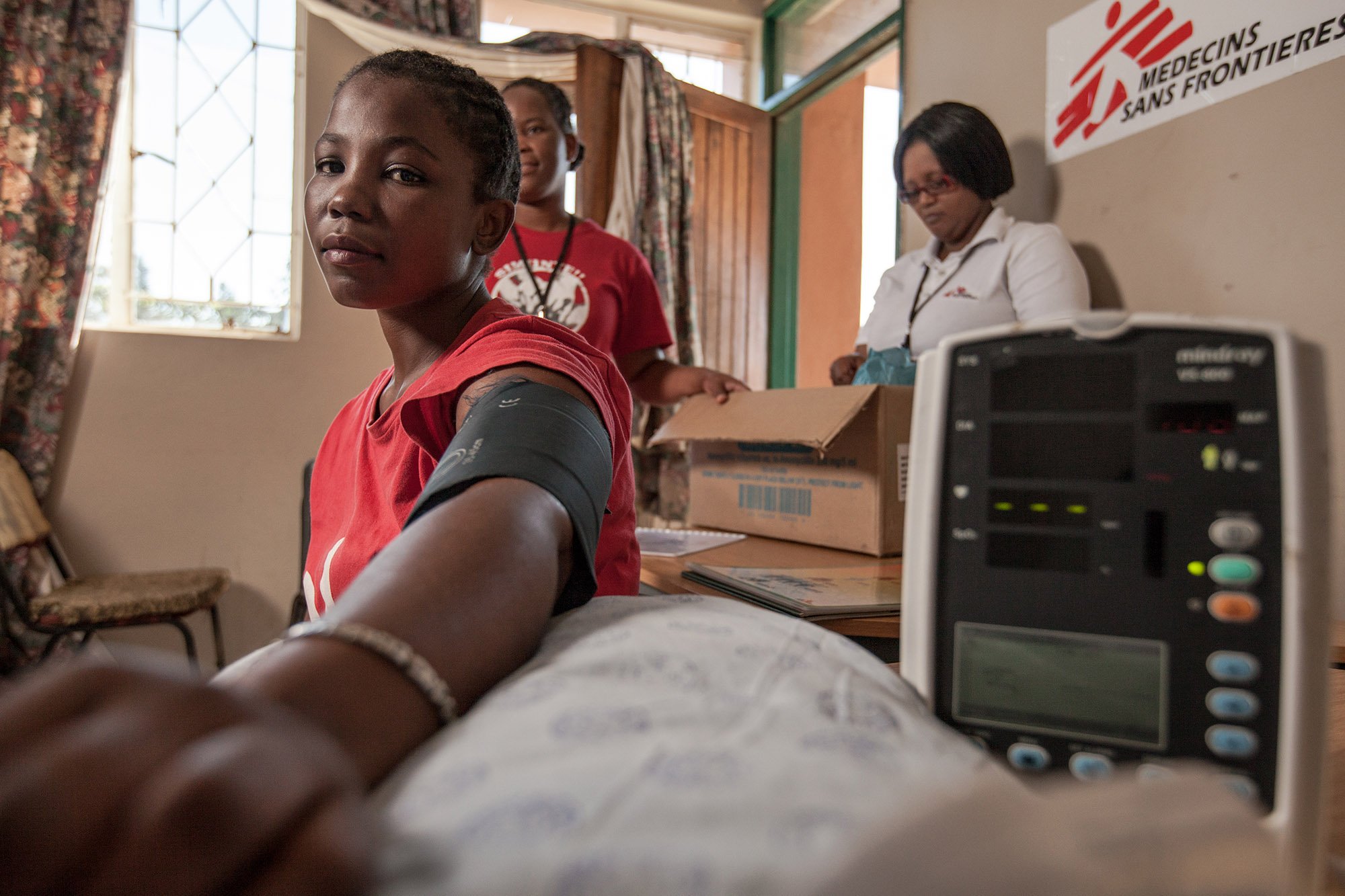
Twenty-six-year-old Londiwe Gamede, a young mother, gets her blood pressure taken by a MSF nurse at the Community Adherence Club she’s attending at King Dinizulu Clinic in Eshowe, KwaZulu-Natal. She is among 30 stable HIV+ patients who attend the club once every two months to have their health checked and receive their ARVs. This relieves people living with HIV of the hassle of sitting in long queues for 1-on-1 visits, and reduces the strain on an already overburdened public health system. Photo: Greg Lomas / MSF
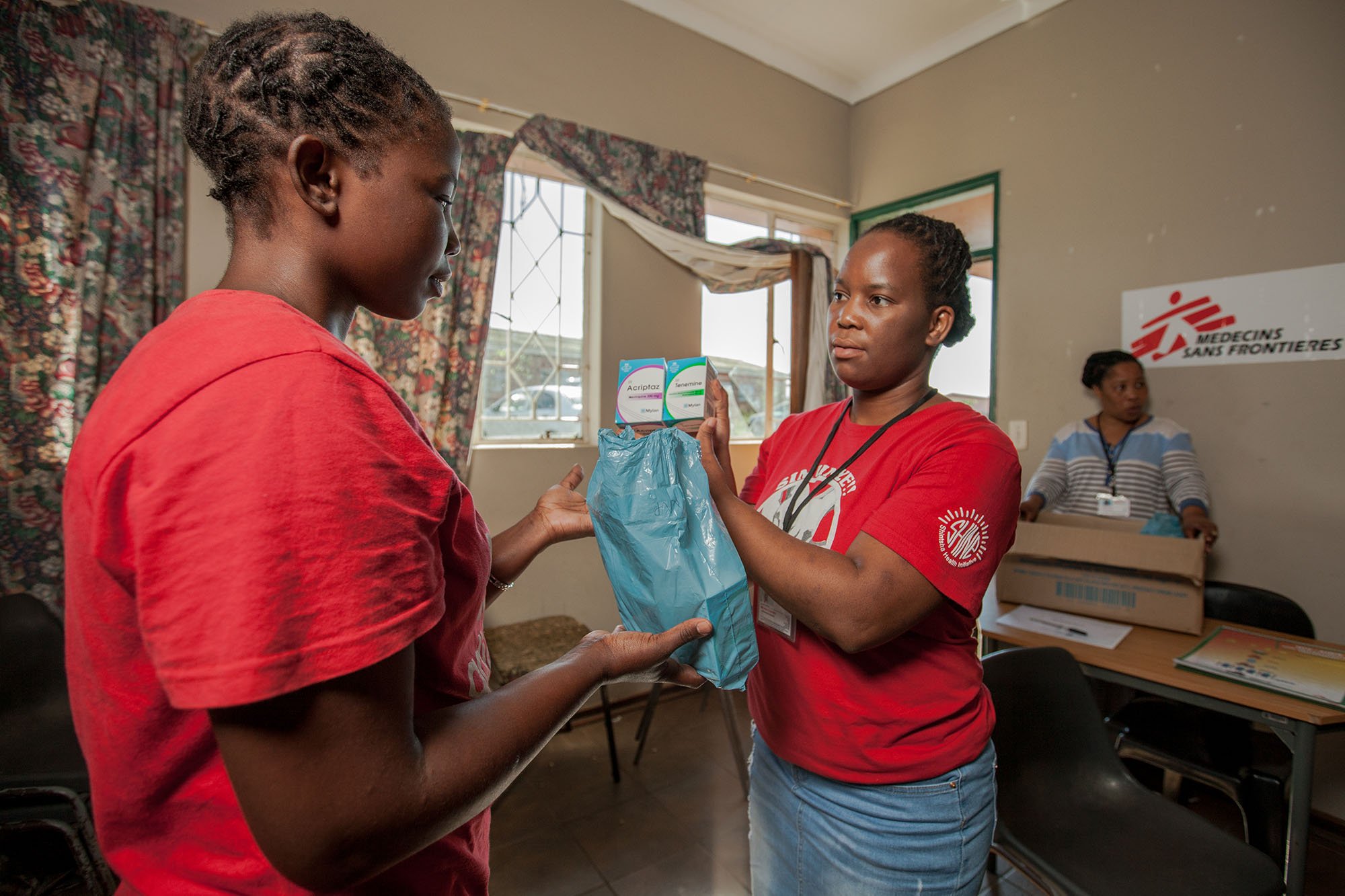
After having her blood pressure taken and her weight checked, 26-year-old Londiwe Gamede, a young mother, receives her 2-month supply of ARVs from MSF Lay Counsellor Gugulethu Mhlanga at the Community Adherence Club she’s attending at King Dinizulu Clinic in Eshowe, KwaZulu-Natal. Londiwe is among 30 stable HIV+ patients who attend the club and now no longer have the hassle of sitting in long queues for 1-on-1 visits at the clinic, thereby reducing the strain on an already overburdened public health system. Photo: Greg Lomas / MSF
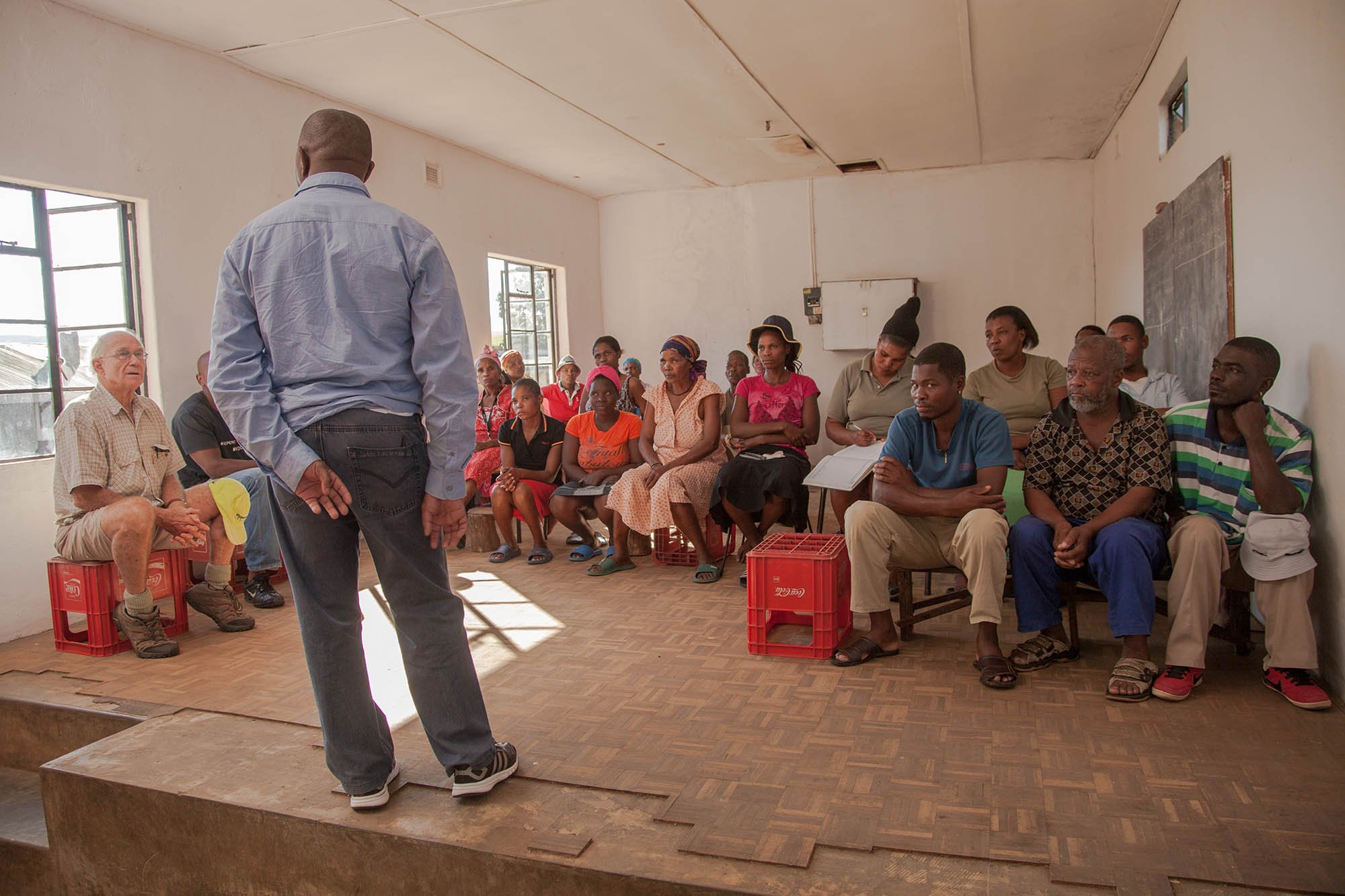
On a farm on the outskirts of Eshowe in rural KwaZulu-Natal, a group of farmworkers (and their employer) listen attentively to a HIV health talk delivered by Musa Ndlovu of Medecins Sans Frontieres (MSF). Afterwards the workers will line up to get tested by MSF nurses. Those who are already HIV+ and on treatment will have their vital signs and weight checked, and receive a supply of ARVs. Those who test positive for the first time will be counseled and linked to care. MSF is working to bring anti-retroviral treatment to this key population group. Photo: Greg Lomas/MSF
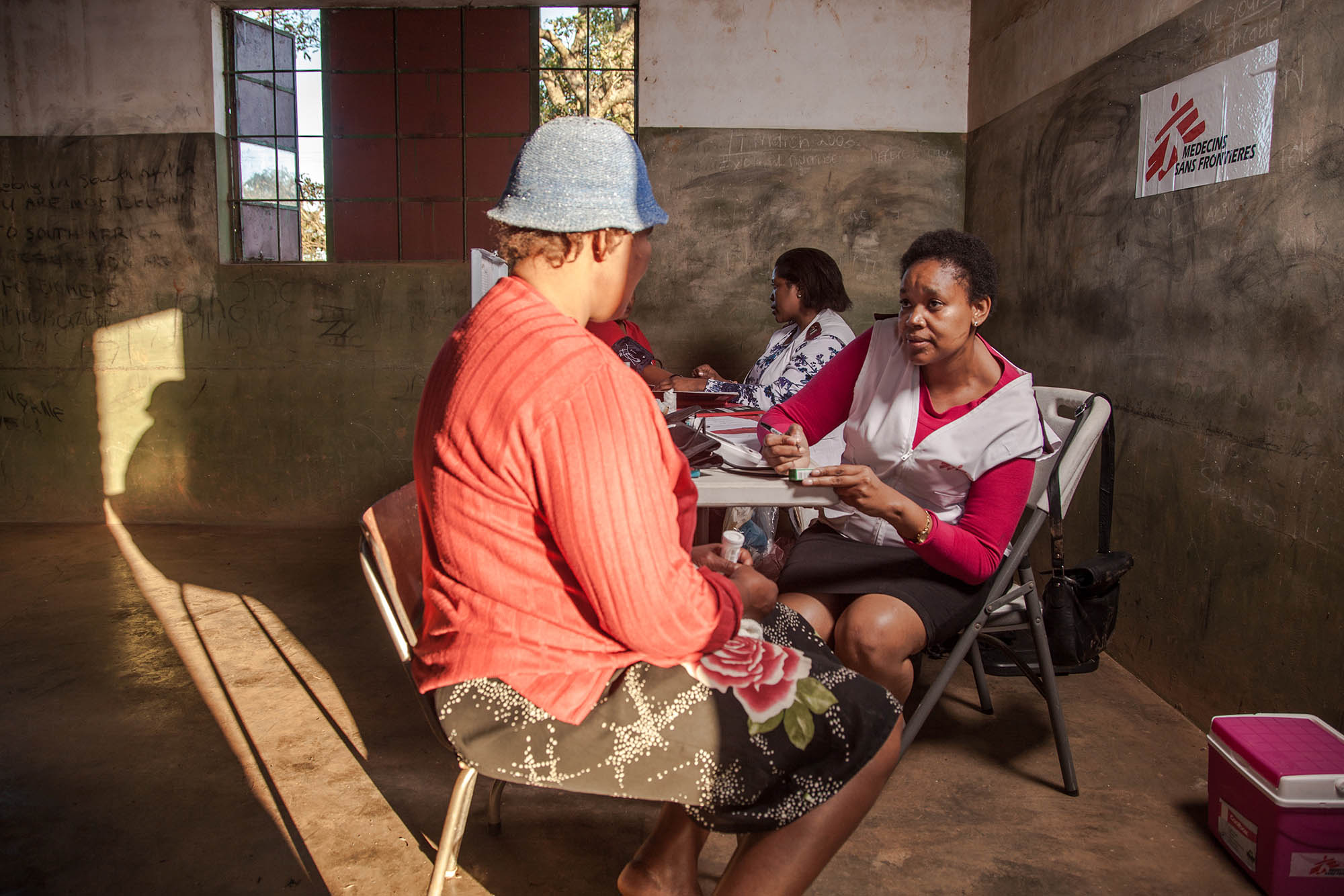
MSF urse Gloria Galela attends to a woman working on a farm near Eshowe in rural KwaZulu-Natal. MSF is working to bring HIV testing and treatment to this key population group in the province, where HIV prevalence is among the highest in South Africa. Photo: Greg Lomas / MSF
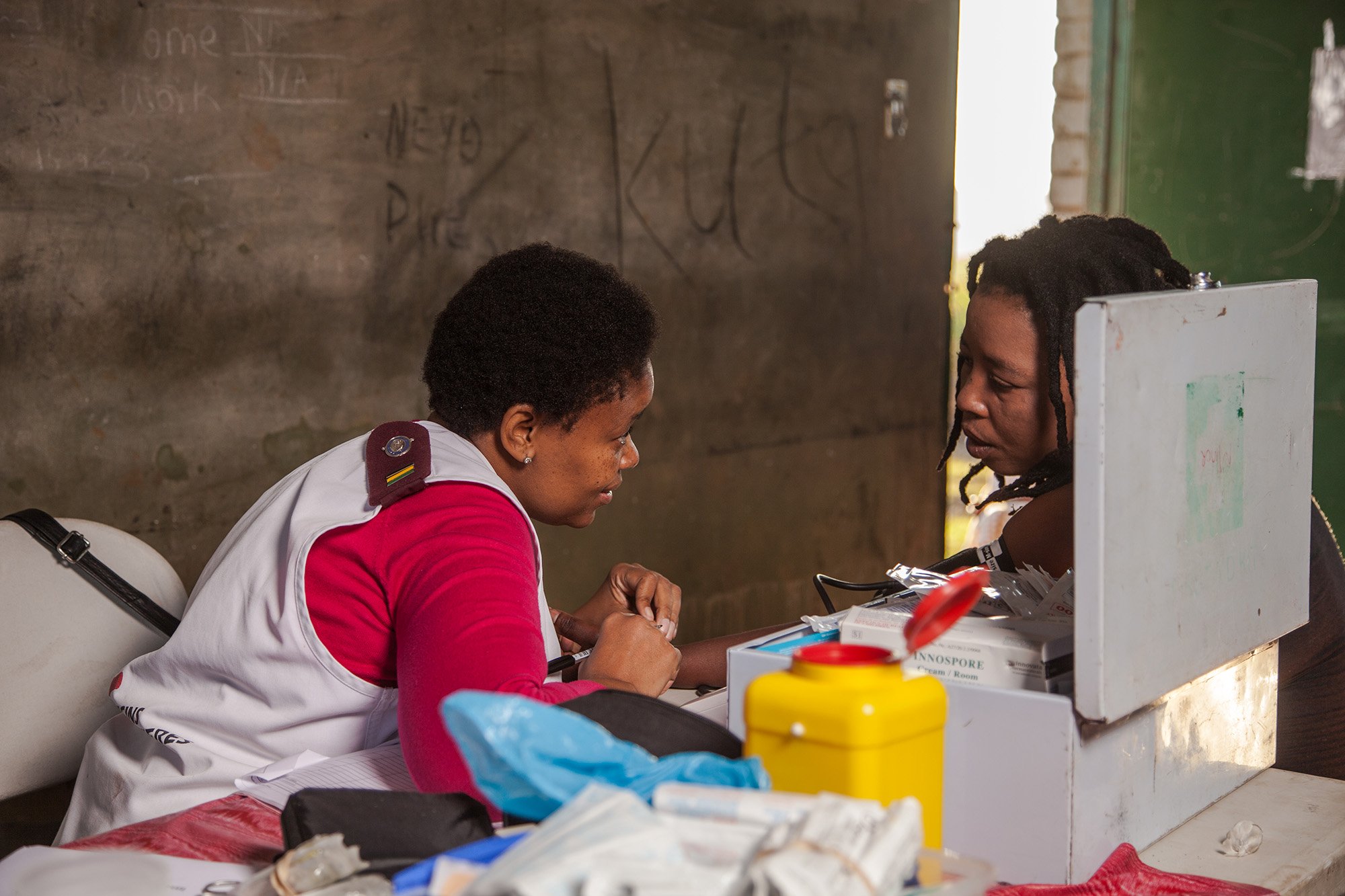
MSF nurse Gloria Galela attends to a woman working on a farm near Eshowe in rural KwaZulu-Natal. MSF is working to bring HIV testing and treatment to this key population group in the province, where HIV prevalence is among the highest in South Africa. Photo: Greg Lomas / MSF
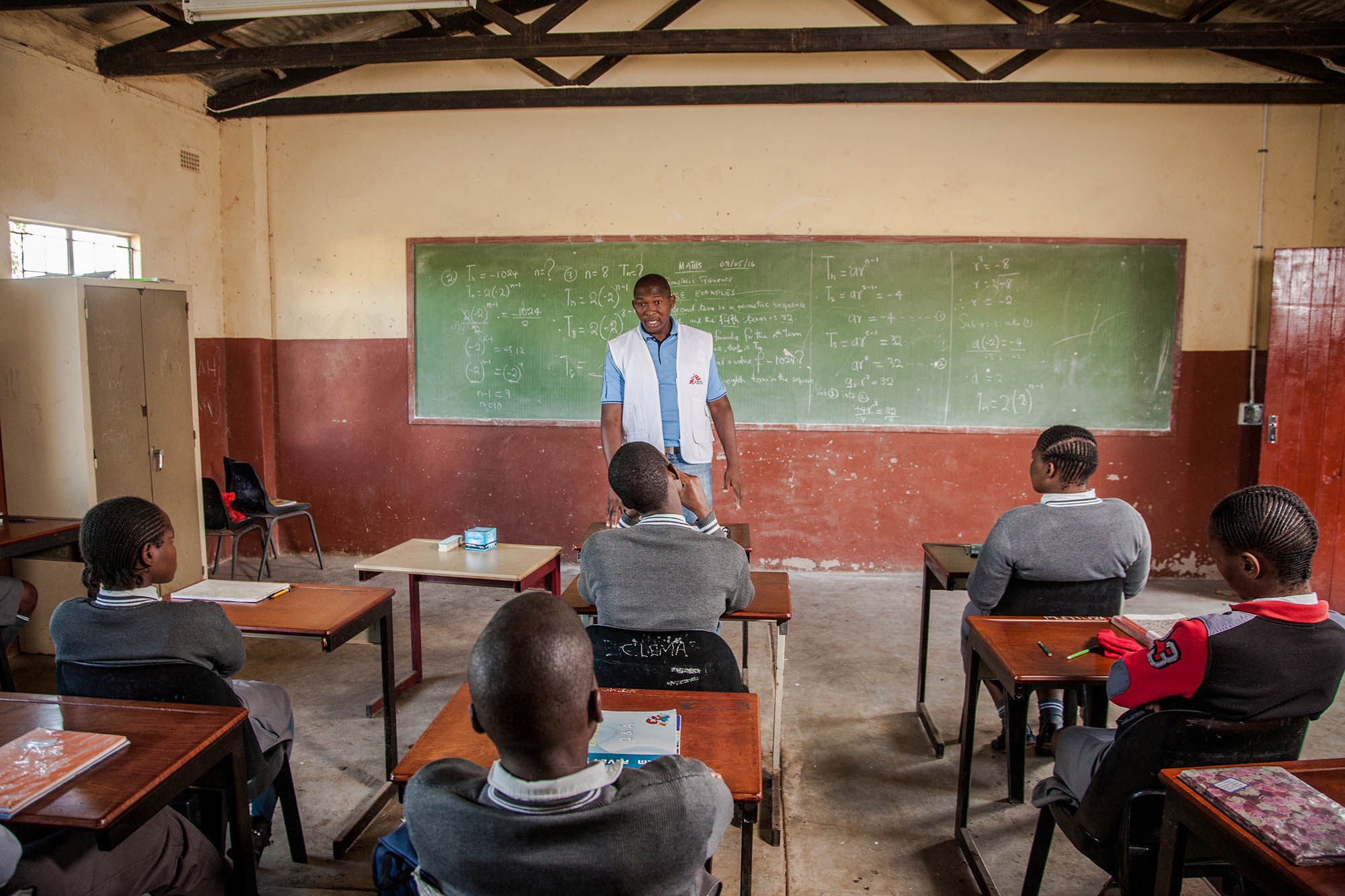
Lay Counsellor Nkosinathi Mpungose delivers a HIV health talk to learners of Hhashi High School in ward 1 of Uthungulu District, Umlalzi Municipality Eshowe. The learners will be given the opportunity to sign up for HIV testing at the Mobile 1-Stop Shop (M1SS) parked on the school grounds. MSF’s Mobile 1-Stop Shop has travelled to dozens of schools, colleges and local sporting and cultural events to deliver HIV Counselling and Testing to people of all ages in rural KwaZulu-Natal, the South African province with the highest prevalence of HIV infection. Photo: Greg Lomas / MSF
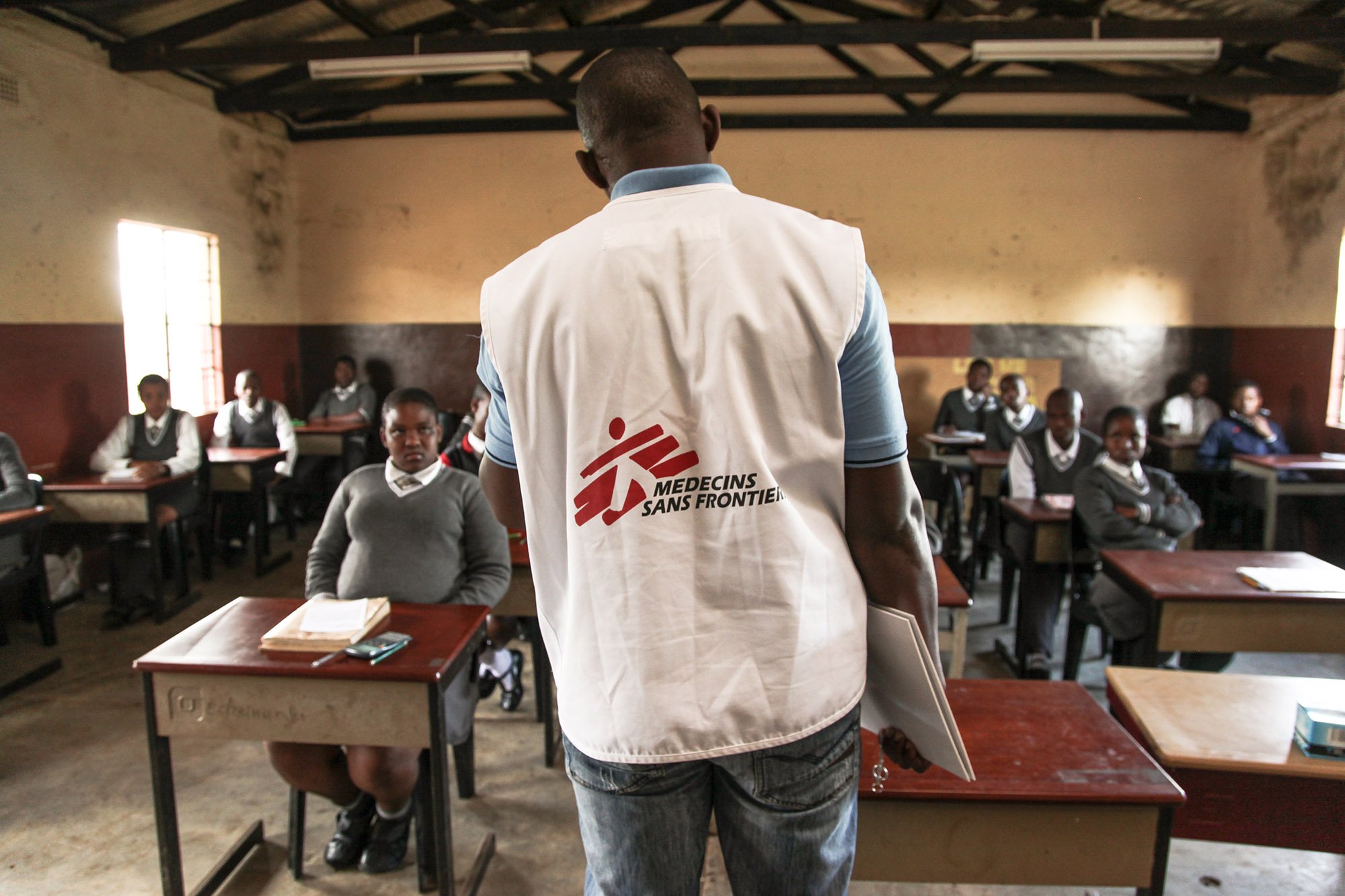
MSF Lay Counsellor Nkosinathi Mpungose delivers a HIV health talk to learners of Hhashi High School in ward 1 of Uthungulu District, Umlalzi Municipality Eshowe. The learners will be given the opportunity to sign up for HIV testing at the Mobile 1-Stop Shop (M1SS) parked on the school grounds. MSF’s Mobile 1-Stop Shop has travelled to dozens of schools, colleges and local sporting and cultural events to deliver HIV Counselling and Testing to people of all ages in rural KwaZulu-Natal, the South African province with the highest prevalence of HIV infection. Photo: Greg Lomas / MSF
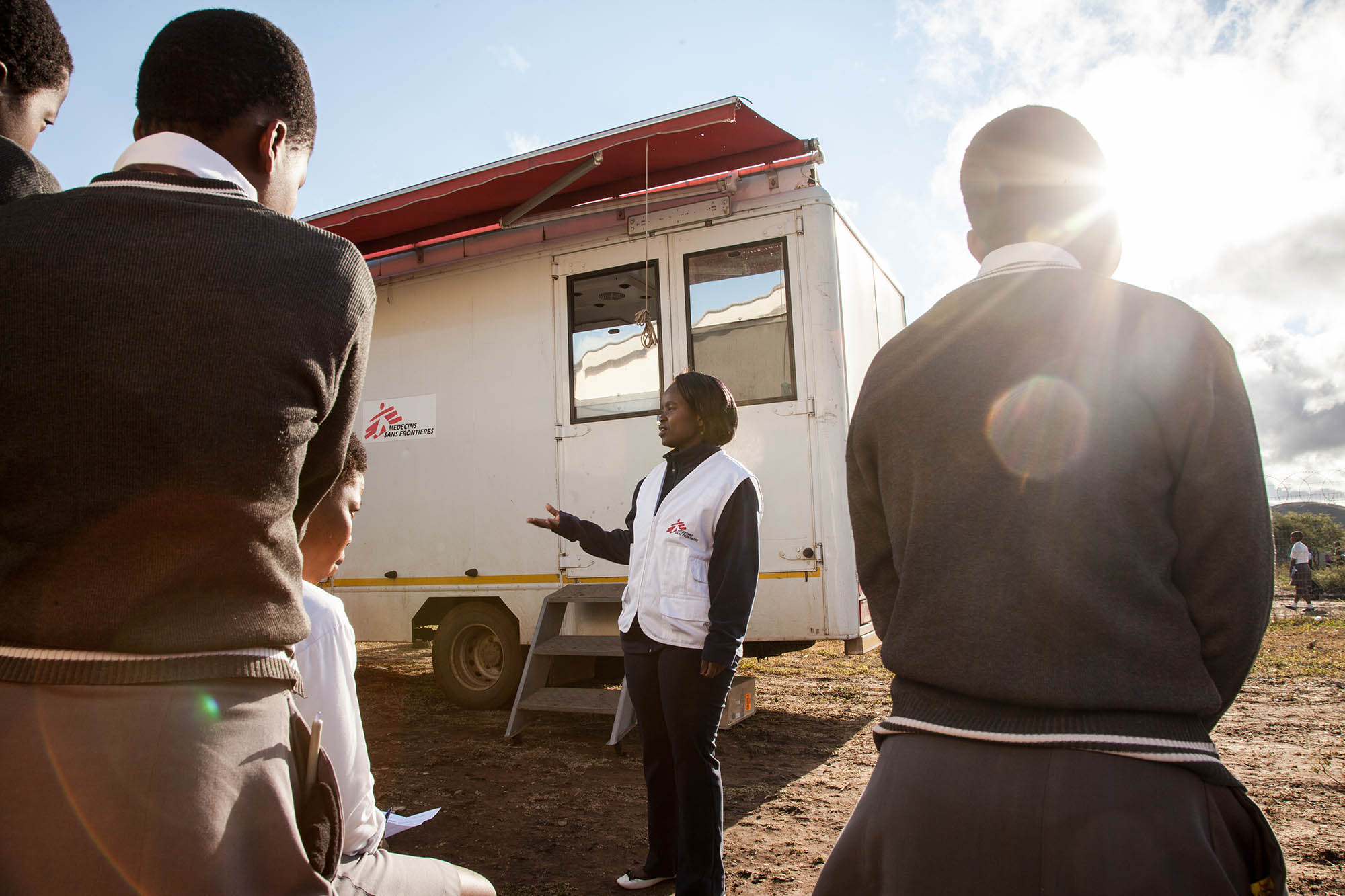
Learners of Hhashi High School in the remote Umlalazi Municipality under Uthungulu Districtict in KwaZulu-Natal stand in line to receive HIV Counselling and Testing at Medecins Sans Frontieres (MSF) Mobile 1-Stop Shop. MSF uses the vehicle to deliver HIV Counselling and Testing to people of all ages in rural KwaZulu-Natal, the South African province with the highest prevalence of HIV infection. Photo: Greg Lomas / MSF
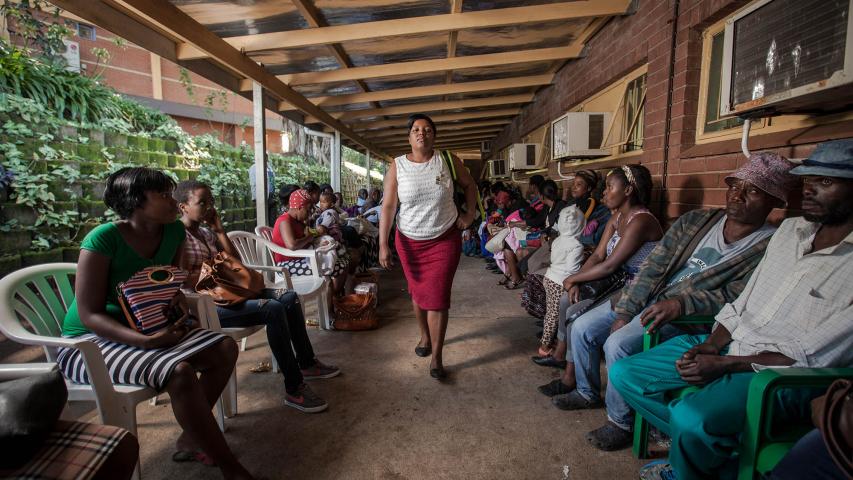
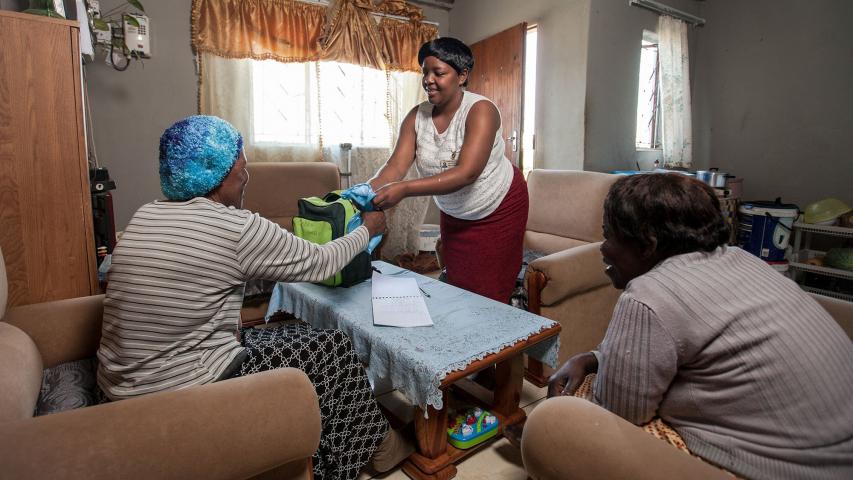
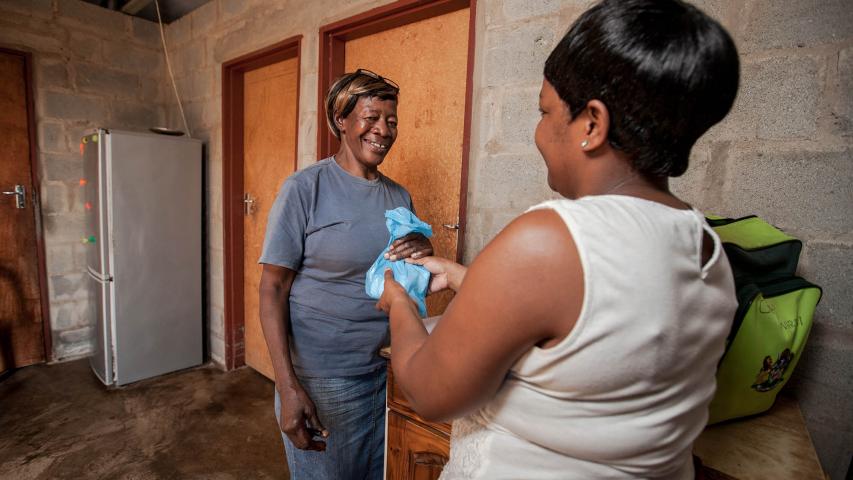
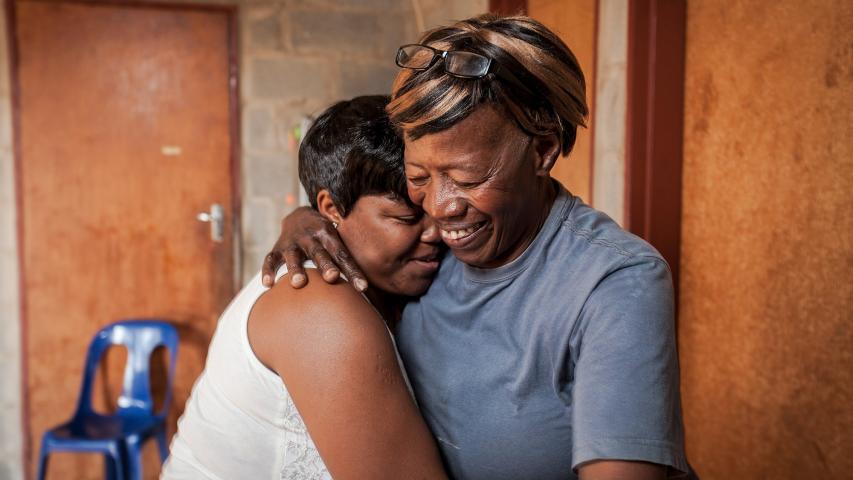
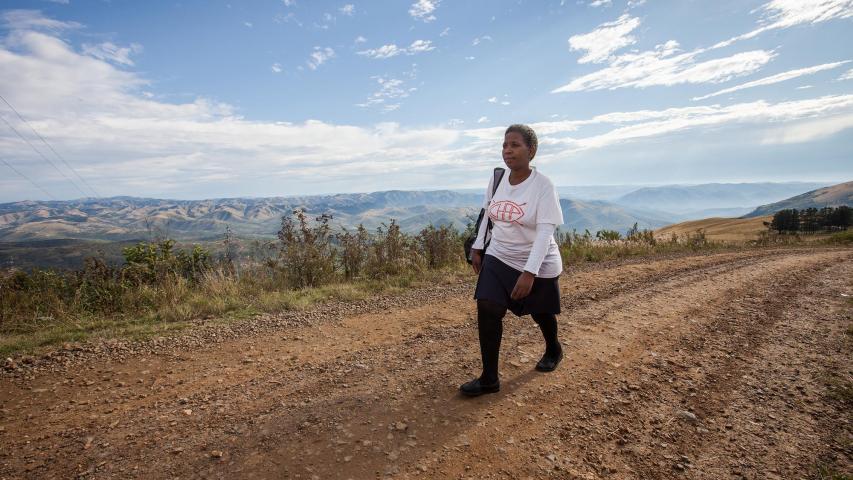
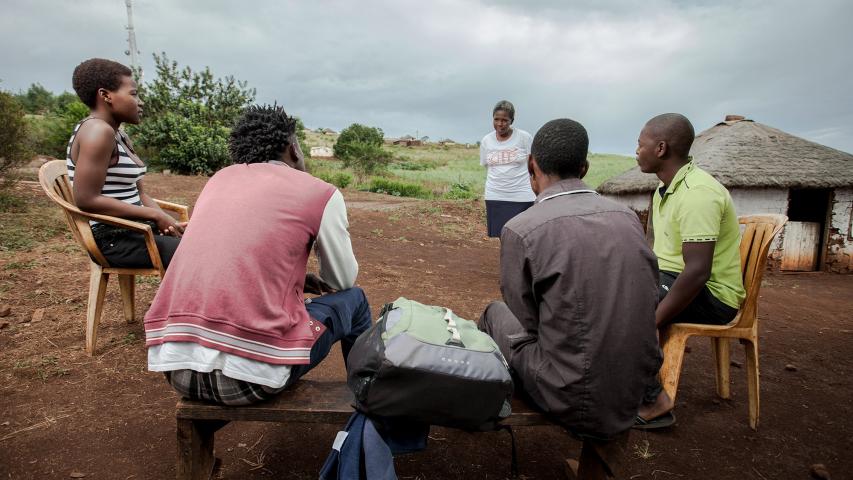
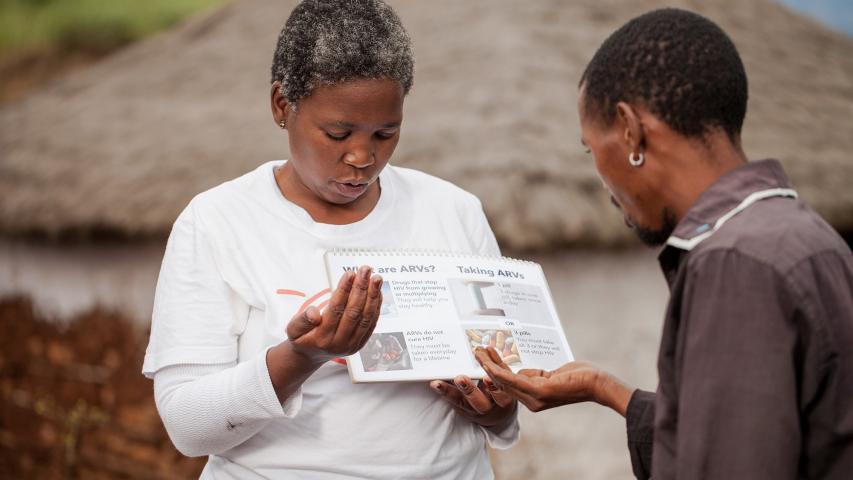
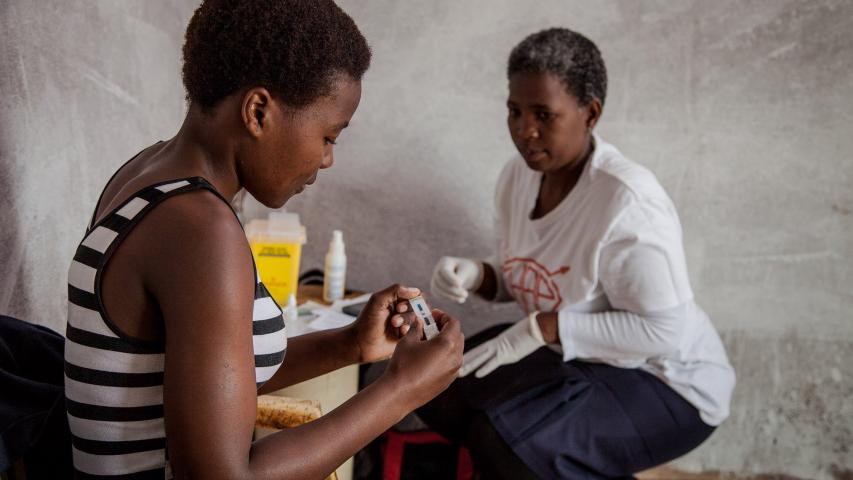
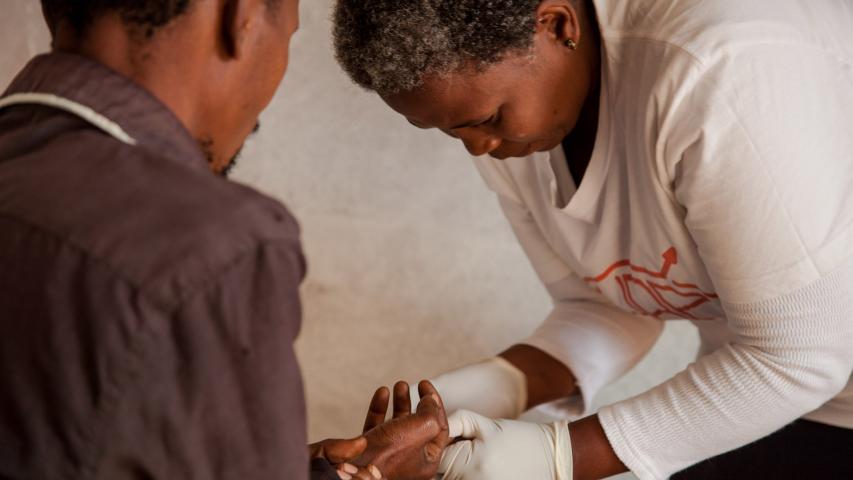

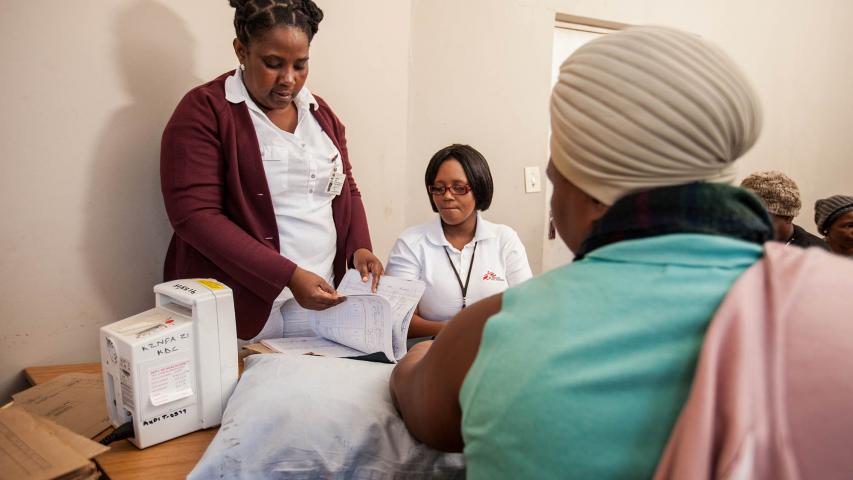
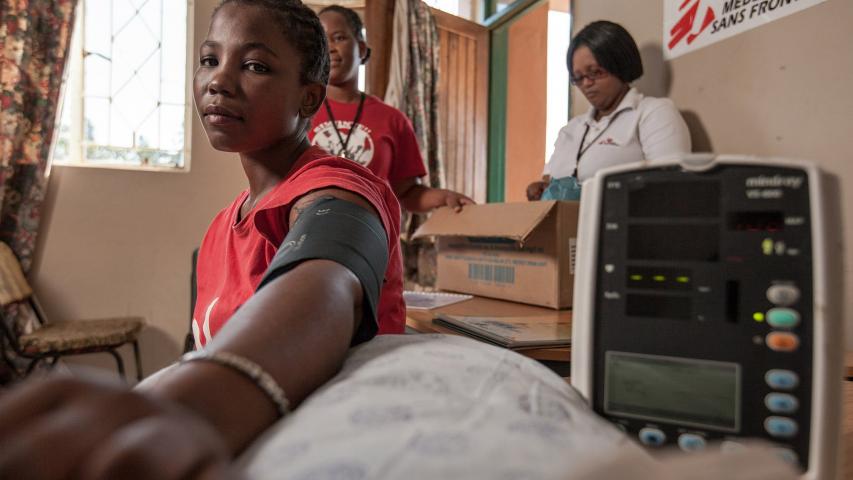
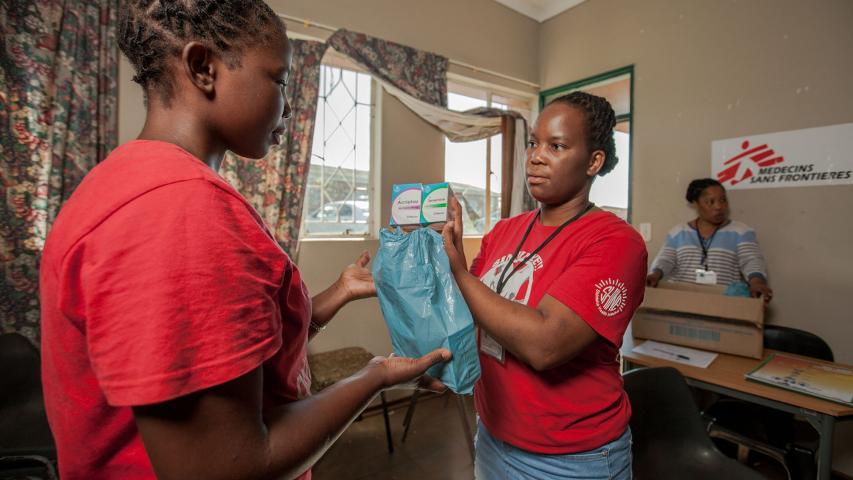
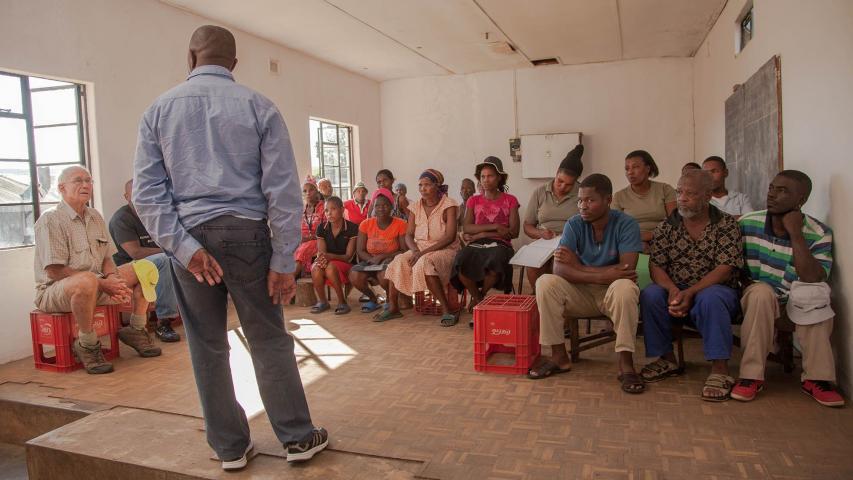
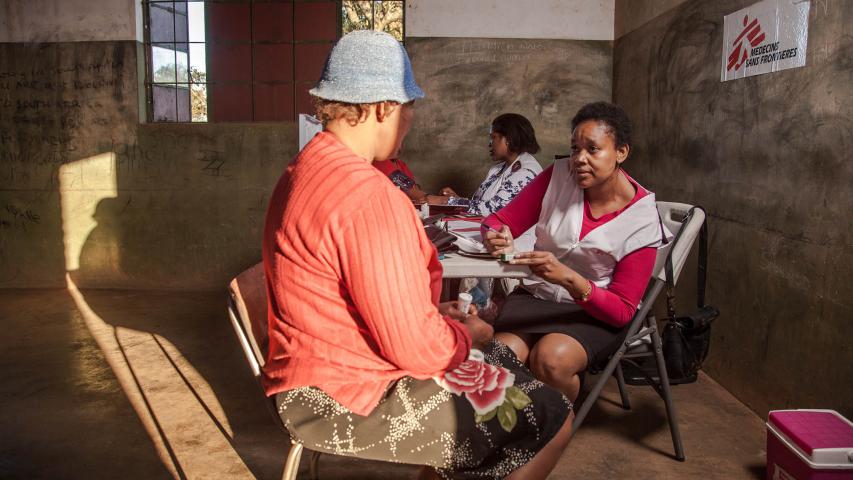
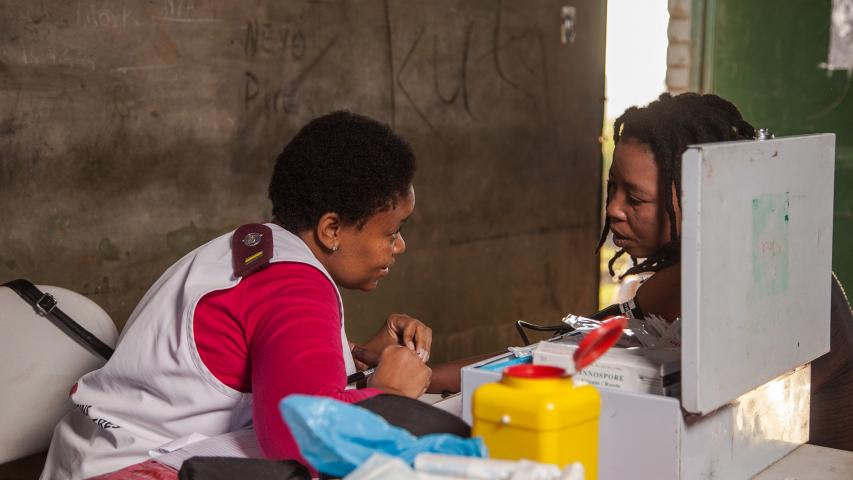
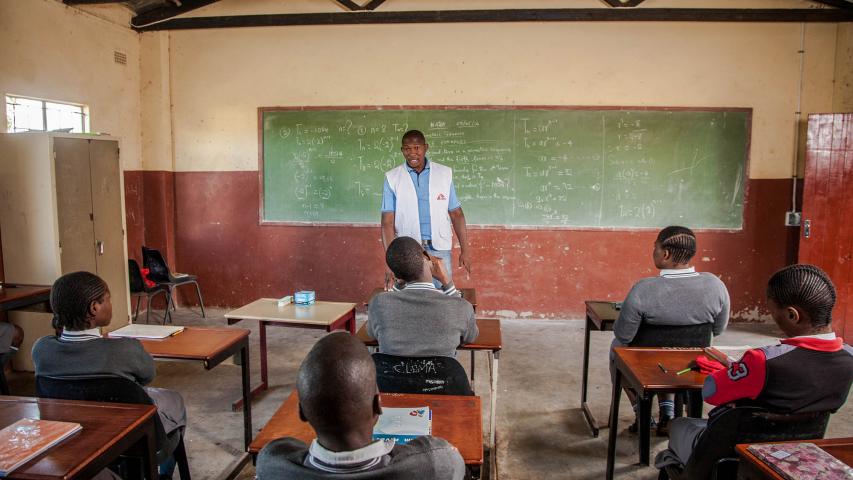
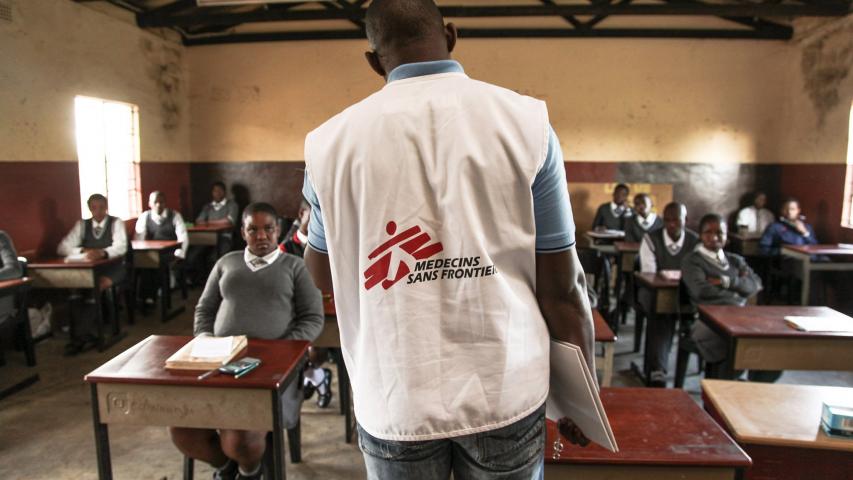
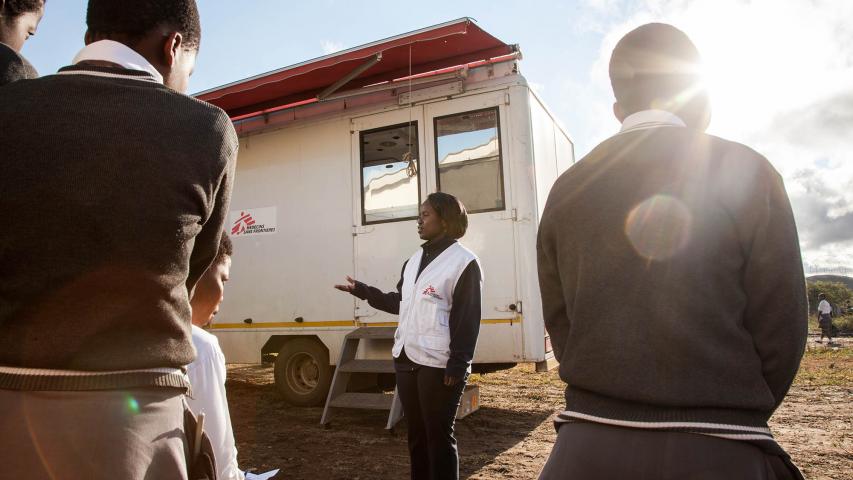
A survey conducted in the Eshowe/Mbongolwane areas of KwaZulu-Natal in 2013 found that one in four adults aged 15 – 29 is HIV positive, with an even higher infection among women aged 15 – 39.
Shot by Durban-based photographer Greg Lomas in June 2016, the photographs in this slideshow reveal the work being done by MSF doctors, counsellors and nurses in our Bending the Curves project in what might well be the epicentre of the AIDS epidemic in South Africa.
Opened in April 2011 in partnership with the provincial department of health, the project seeks to implement multiple strategies to reduce the high incidence of HIV and TB in the area, and ‘bend the epidemic curves downward.’
The project supports nine clinics and three hospitals in the Eshowe urban and Mbongolwane rural health services areas, allowing MSF to demonstrate the outcomes of the project in both an urban and rural setting.